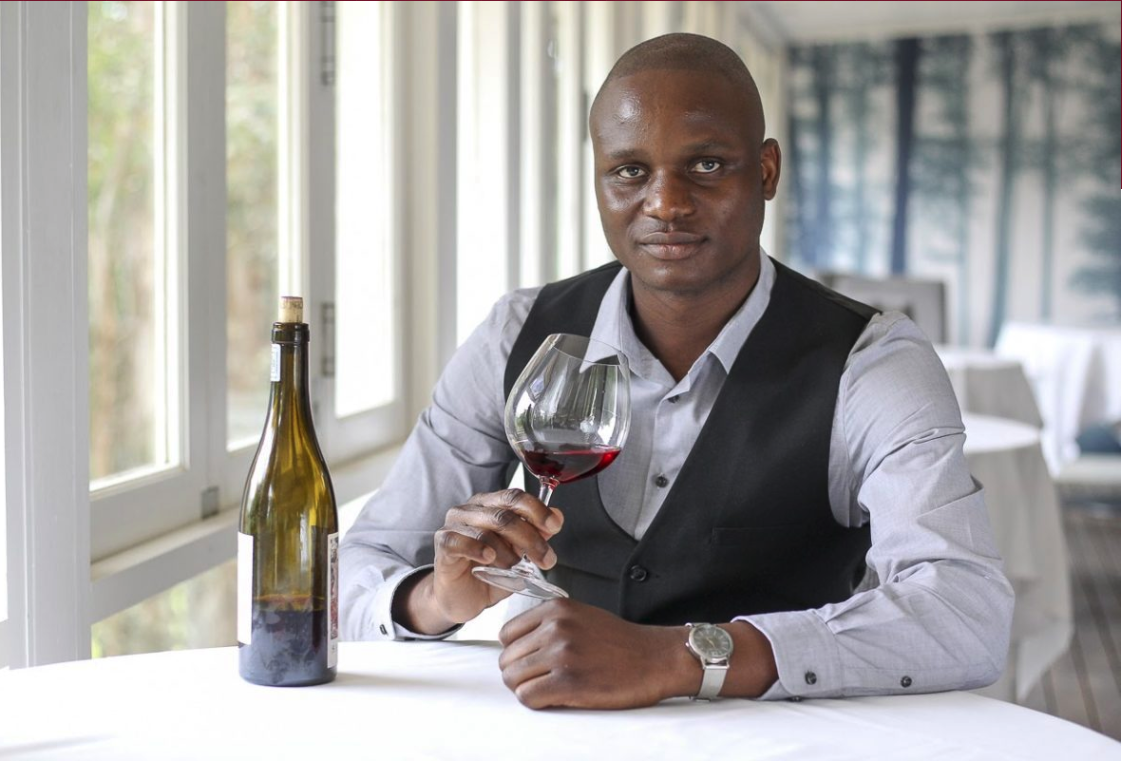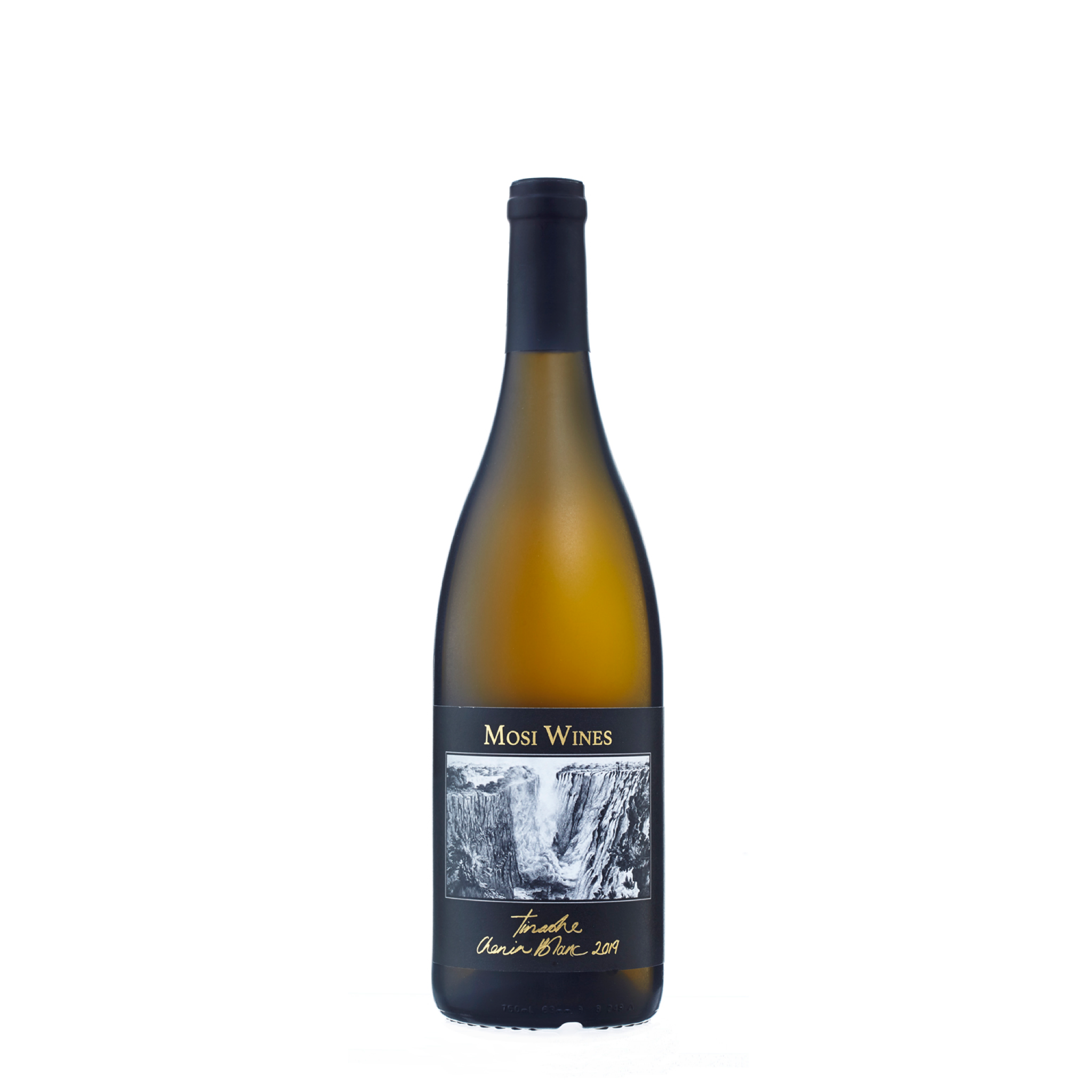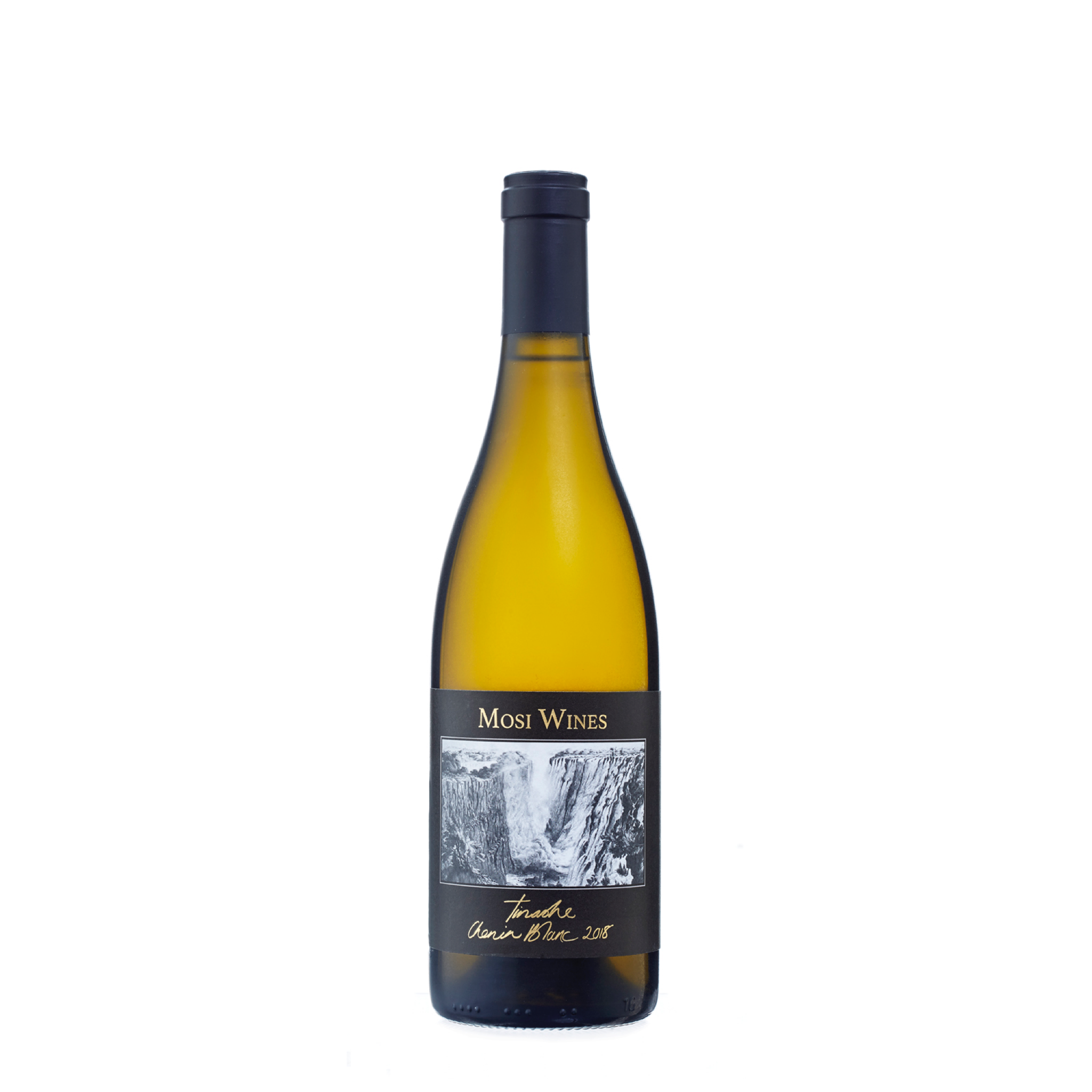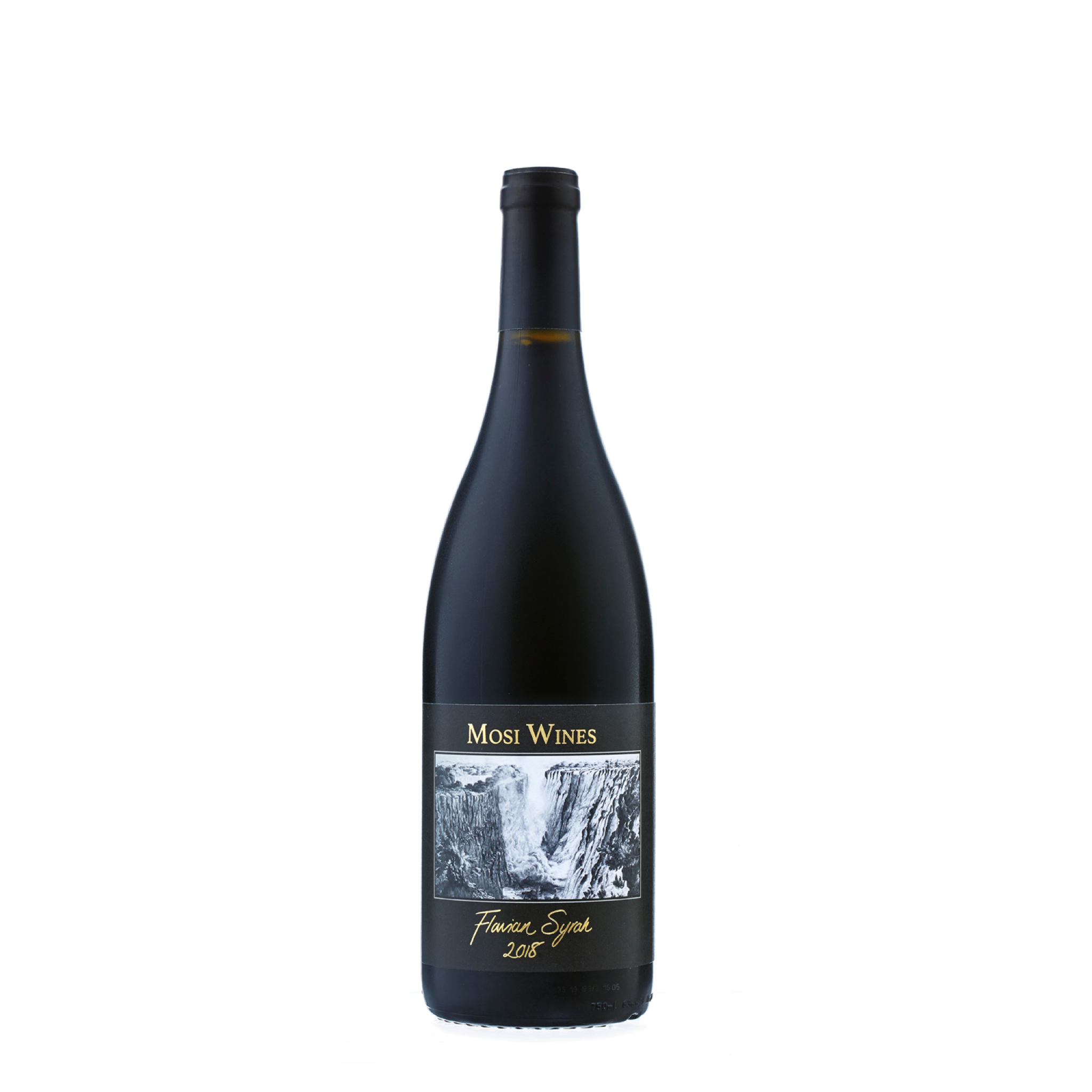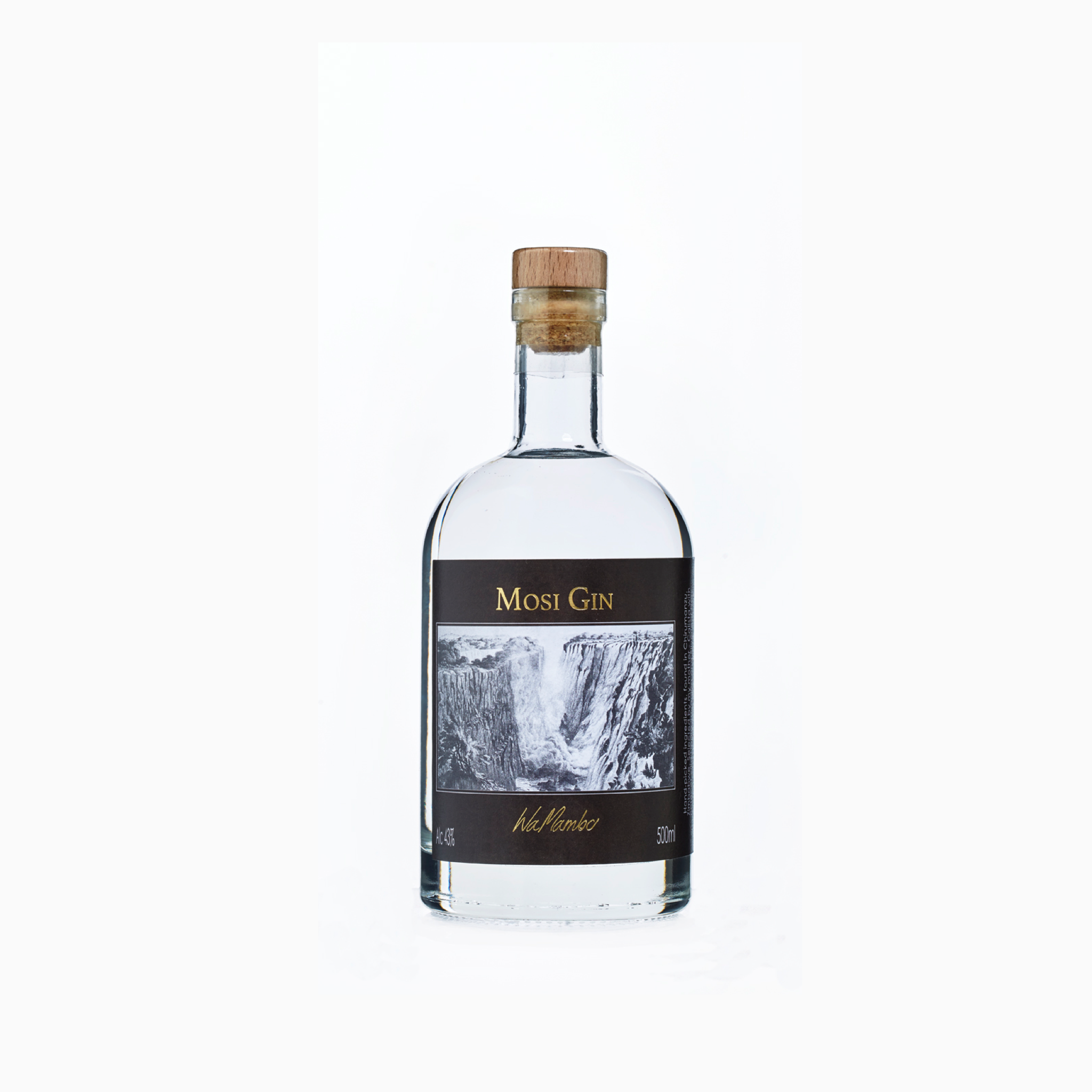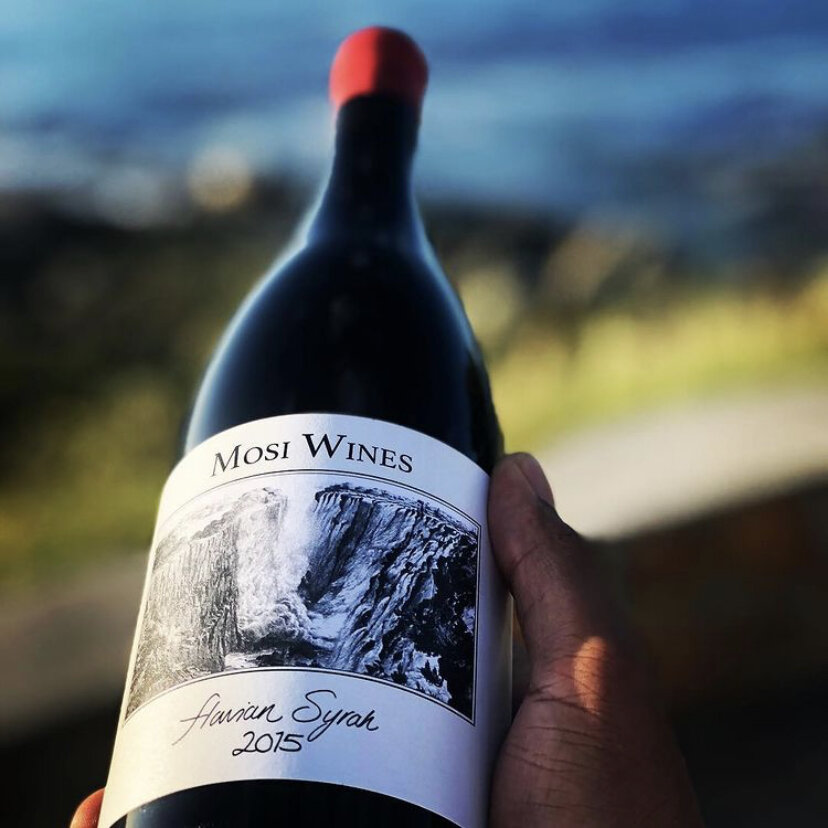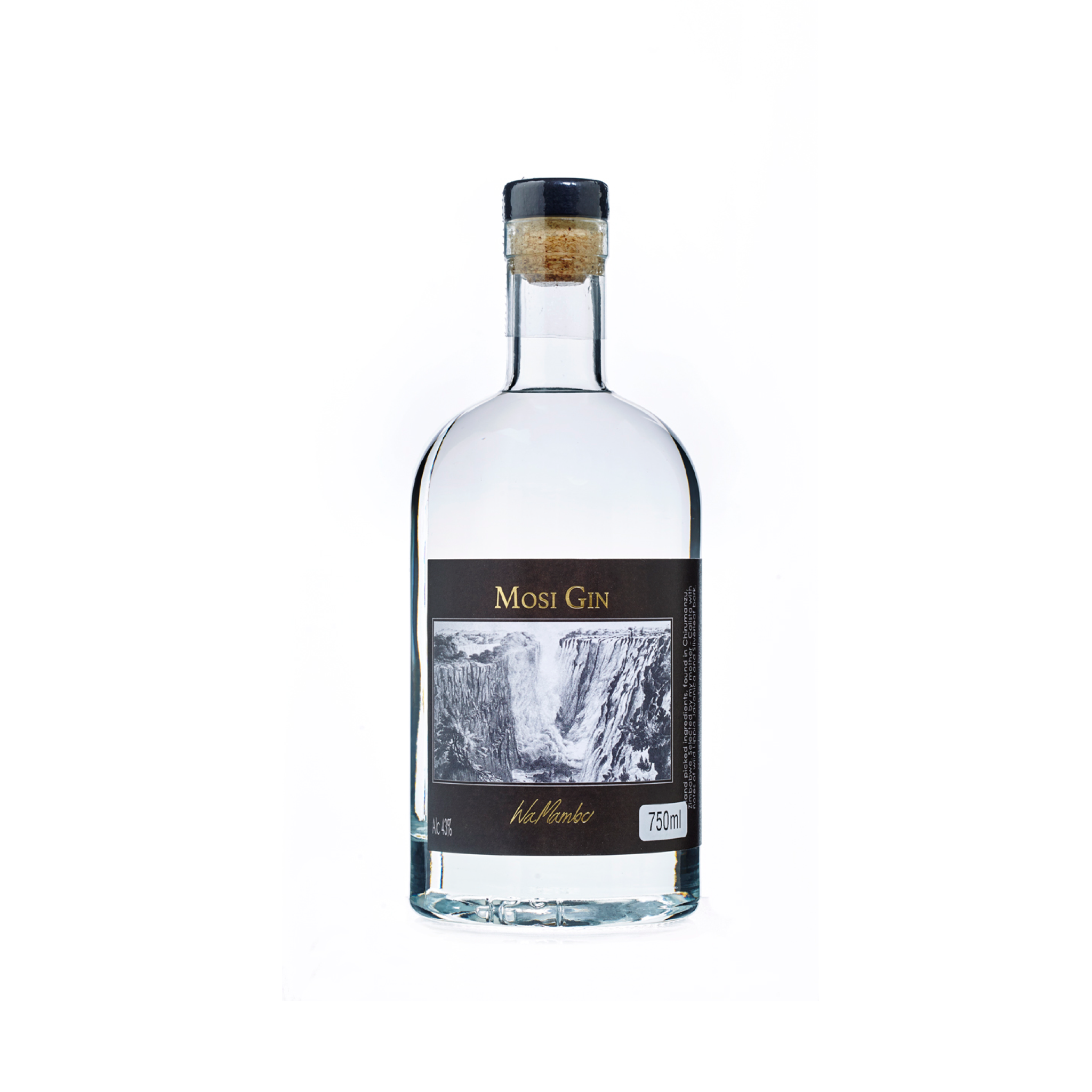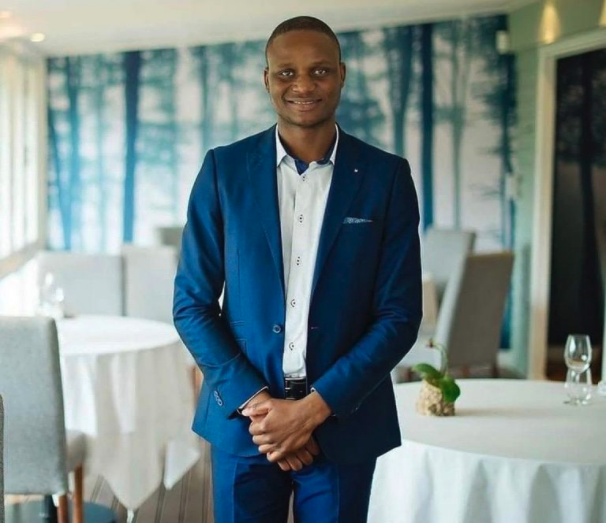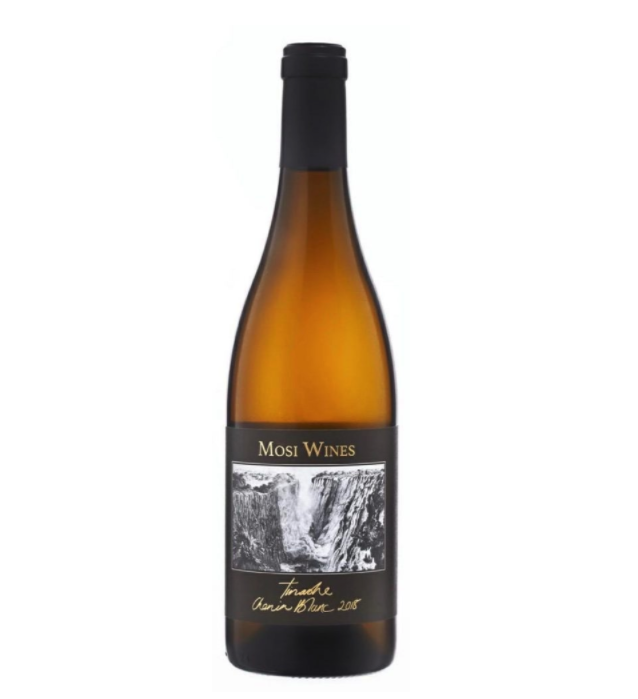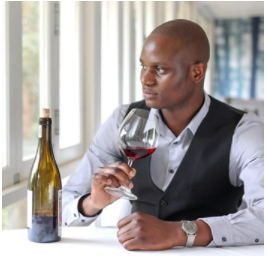Joseph Tongai Dhafana
Sommelier, lover of good wine, wine maker and a proud dad, who enjoys simple things in life. Joseph makes MOSI wines.
Tongai was part of Team SA - who won the 2015 South African Wine Tasting Championships and went to France with Jean Vincent Ridon to participate in the World Blind Champs .
Tongai is currently working at La Colombe in Cape Town, and, having won a bursary to attend the 2016 Michael Fridjhon Academy, passed the judging course.
CAREER OBJECTIVES
My aspiration and ultimate goal is to grow into the role and position of hotel general manager within a reputable establishment where my skills and passion will be utilised to their maximum ability.
In all my work endeavours I only delivered the highest levels of performance. I am a diligent and smart person who constantly strives for the very best. Upon interviewing me you will discover this and I am confident that I will prove to be asset to your organisation.
PERSONAL STATEMENT AND MOTIVATION
I am a passionate, skilled and hardworking man with a lot of experience in food and beverage operations and hotel management. I have an all-round excellent command of hotel and lodge operations management.
I offer a combination of food and beverage knowledge, duty management, front office and housekeeping experience. I have a natural love for wines and a talent and skill in wine tasting and occasionally do wine tasting sessions.
I regard myself as a future General manager in the making. I possess excellent people skills and have a natural ability to easily create relationships with people. I am diplomatic, professional, amiable and an effective communicator.
As a natural eager and ambitious person, ideal position will be one that makes us of my knowledge, passion and skills. I value honesty, hard work as well as ethical practices at the workplace. With these qualities I view my contribution as invaluable to any organization.
Joseph is a Board member of BLACC - launched in Oct 2016
Joseph is also captain of TeamZim - and competed in the World Blind Wine Tasting Championships in 2017
The Refugee Turned Winemaker
It’s a story as ripe and rare as vintage wine, also an unlikely story of an entrepreneur who spent most of his life without laying eyes on a vineyard, but now he owns one.
He grew up among poor farmers in Zimbabwe’s dry province of Masvingo. This is the life and times of Tongai Joseph Dhafana, a Zimbabwean winemaker.
“My parents farmed to pay my school fees. After I completed my ordinary levels I moved to Gweru to work at Sino-Zimbabwe Cement Company,” says Dhafana.
“My first salary in Zimbabwe was 1,099 Zimbabwean dollars but by the time I left in 2009, it was in millions,” he says of his country’s decline.
His rise was difficult and often he felt as crushed as his grapes.
“I relocated to South Africa in 2009. I stayed at Musina refugee camp for two weeks looking for documents that would ease my travel. In Johannesburg I stayed at the Central Methodist Church.”
The Central Methodist Church in central Johannesburg is famous for sheltering refugees. The church opened its doors under the leadership of Bishop Paul Verryn during the xenophobic violence of 2010. It was one of the few refuges from violent mobs roaming the streets looking for Africans from other countries.
Like many in the church, he came up with a quick idea to get out. His destiny lay in Cape Town, a place that would teach him the trade and thrust him into the global stage on his way to becoming a millionaire and a bon viveur.
“In Cape Town I worked as a gardener and was promoted to washing dishes and soon became a bartender. It is in the bar that I would taste my first glass of wine on my birthday.”
This sip of wine was the foretaste of a new life.
“Seeing smiling faces sharing a bottle of wine triggered my curiosity and interest to explore the miracle of wine,” he says.
“Other than smiling faces, I was also fascinated by the vine and the journey the grapes travelled from the winelands to some of the most expensive hotels across the world.”
In 2015, he entered a wine competition that would transform the unknown Zimbabwean into a wine ambassador of Africa’s most industrialized economy.
Dhafana was part of Team SA, which won the 2015 South African Wine Tasting Championships, and travelled to France to compete in the World Blind Tasting Challenge.
“I competed in the blind wine tasting competition with 200 others and booked a spot in the top 20 at Taj hotel in Cape Town. In the finals, I was in top three which secured my ticket to France for the world blind wine tasting championships. We came 12th out of 20, the best result South Africa has ever scored,” he says.
Now he has his own company, Mosi, which make the Mosi Rouge and Fraternity. His wines are sold in Sweden and the United Kingdom. The name Mosi is derived from his home country’s Mosi-oa-Tunya waterfalls – meaning the smoke that thunders – the original name of Victoria Falls.
He has also gone to school to improve his knowledge of winemaking.
“I am balancing my studies with my business. I thought I had found wine when I started the business of wines and with each day I am realizing that wine found me.”
The optimism that took him from his home of Chirumhanzu, one of Zimbabwe’s forgotten districts, is still with him as he looks to a future of wine and millions.
“Our prospects are very positive, and for the 2017 vintage, we are estimating numbers in the region of 10,000 bottles.”
A single google search for his name will take you to a number of wine websites demonstrating his growing influence.
His success has not alienated him from his countrymen who are also seeking fortune in South Africa. The Zimbabwean community in South Africa recently honored his toil with an upcoming entrepreneurship award.
His passion stretches to his closing signature of his email: “In water you see your own reflection; in wine you see the heart of another”.
In an industry dominated by white males and household names, this means a lot for a former refugee who once looked into water and saw only despair.
Joseph Dhafana is Pushing the South African Wine Scene Forward
In 2007, Joseph Dhafana was a plant attendant at a cement factory in Zimbabwe. His homeland was on the brink of an economic crisis and as the news made ripples around the country, Dhafana was close to his breaking point.
A hyperinflation-fueled financial collapse led to clothing and food shortages just a year later, and many Zimbabweans sought opportunities in other countries. This would be Dhafana’s push to venture out of his home country and seek a better life, one that would eventually position him as a champion and authoritative voice in the world of South African wines.
Dhafana’s Journey to South Africa
With more than 72% of Zimbabwe’s population living in extreme poverty between 2000 and 2008, many left behind their families in the hopes of making a living wage. “There was no hope. You could have your trillions in your hands as liquid cash, but you couldn’t buy anything. There is no [worse] feeling than the one you get when you walk in the shop only to find out the shelves are empty or spending half a day queuing for a loaf of bread,” he explains.
Dhafana and his wife, Amelia, carefully crafted a plan for their new life and boarded a fruit truck to make the illegal journey to Johannesburg, South Africa. They then traveled another 28 hours by train to get to Cape Town, which would be their eventual home.
As Dhafana settled into his new, foreign life, he worked as a gardener, which would be his primary source of income until he discovered wine. While working as a gardener, Dhafana also served in restaurants. His then-manager treated him to a glass of sparkling wine—this would be his first time trying the drink—but instead of falling head over heels, he didn’t care for it much. “I completely forgot about it and only enrolled with Cape Wine Academy in 2012 so that I could get a better understanding about wine [as a server].”
Three years after enrolling in the wine academy, Dhafana’s palate was improving and he was able to detect the nuances and flavor profiles in a glass of wine better. “My strength lies in wine tasting. I think my palate is my best weapon. I came in third [place for] best wine taster of SA in 2015, plus my knowledge about wines of the world is sharp. I can explain Australian wine regions and its geographical locations as if I was born there,” he says.
As part of the Black Cellar Club (BLACC), Dhafana is spearheading wine’s growth in popularity, as both a career and a hobby among Black people in South Africa. He estimates that 90% of the sommeliers on the floor are Black, but for many of them, “it’s hard to learn that they still don’t have power [over] wine list or beverages.” It’s a slow process, but Dhafana says it’s changing thanks to a handful of wineries and restaurants that are willing to hire and train talent, regardless of race.
A Project of His Own
Photo credit: Manley Communications
In 2014, Dhafana was named head sommelier at the fine dining establishment La Colombe. At a time when he could kick up his feet and enjoy his success, Dhafana did the opposite and pursued another venture—winemaking. He built upon his 2013 harvest (the crucial period when ripe grapes are picked from the grapevines) with Chris Mullineux and kept a close eye on the process from start to finish.
His brand Mosi Wines produces wines and gin. The wines are produced from 100% South African grapes and are low intervention, so they’re made with minimal chemical additives. Dhafana describes why he’s gone this route. “Low or minimal intervention wines are the best for me because they usually reflect true terroir or origin and that usually leads to quality. I can only make or sell what I can drink.”
He partnered with the app LABELinmotion to bring his wine bottles to life. Customers can scan the label using the app to take a virtual tour through Victoria Falls, the magnificent waterfall that sits between Zambia and Zimbabwe. For Dhafana, it’s a way to create a full-circle experience of tasting his wine while journeying to his homeland.
There’s Still Plenty More to Achieve
Since 2009, Joseph Dhafana has worked his way up in the restaurant industry. His years of learning, studying and tasting have culminated in winning one of the top honors on the South African wine scene. In 2019 he was awarded Eat Out’s Wine Service Award for his role as head sommelier at La Colombe, giving him yet another reason to celebrate.
He’s come a long way, but he has learned one simple thing. “Determination breeds success and if you don’t try new avenues, nothing will come your way.”
40 Under 40: Joseph Tongai Dhafana
In February 2009 Dhafana and his wife, Amelia Chakamba, fled the tide of tyranny that Zimbabwe experienced under President Mugabe’s rule and headed to South Africa. A long, gruelling journey finally led them to Cape Town. It was here, in such a creatively rich—and one often thinks socially free—city that he began building a new life for himself and his family that was beyond his wildest dreams.
For Joseph, patience isn’t just a virtue—it’s a tool. He has worked as gardener, dish-washer & finally as bartender at Bar Bar Blacksheep where he discovered a passion for wine. His determination to succeed – and survive - paid off and after working at several top restaurants in Cape Town during the early days, he was teetering on the edge of intensely promising career in the wine industry a mere seven years after he arrived penniless in South Africa.
Now, Joseph is head sommelier at La Colombe restaurant and his palate is regarded as one of the best in Africa. He captained the Zimbabwean team at the World Blind Wine Tasting Championship in October 2017. As Dhafana enters the next dimension of his career as winemaker of his own label, Mosi, he is modestly creating a poignant life lightyears away from his hometown of Masinga. Mosi is not just another wine. The brand gives us a window into his life - the places he’s been, and where he wants to go. It will be interesting to see where Joseph finds himself in the next five years as his star, driven by humble and honest knuckling down, is in perpetual rise. We talked small beginnings and the measure of success.
What vintage are you?
March 1982
If you could bottle yourself, what would the tasting note be?
Honest, hardworking, adventurous, uncomplicated. I always want to give back to the community where I can.
What sparked your love for food & the drink?
It was in Riebeek-Kasteel which is nestled in the heart of Swartland, working as a waiter at Bar Bar Black sheep restaurant. I adored the way my guests would smilingly engage in conversations while enjoying a lazy Saturday lunch and great wine.
Aliens come down from space & you must explain to them in one bottle of wine what it is that you do – what do you make?
If they do exist and if they come down for sure, Chenin blanc will quench their thirst. The variety is so close to my heart, very versatile and so easy to work with. The wine is never boring at all.
What is still on your bucket list for your wine brand, Mosi?
To increase the volumes and make it available and accessible to many.
Tell us about your lucky break?
My lucky break was when Jancis Robinson and Tamlyn Curin tasted and reviewed my 2014 Chenin blanc. A year later I sat next to them at a dinner table in Burgundy when they came to support team Zimbabwe.
What makes a wine fine?
Making good wine is a technique, making fine wine is art. I am still striving to make either of those. Wine is made in the vineyard, the way you treat your vines, handle your fruits during harvest has a huge impact in the cellar. A good start always has a better ending.
What has been your greatest mistake?
Only discovering wine at age 30.
What is your biggest motivator?
Those who strive to make a difference in the society. Mike Ratcliff is very inspiring.
How do you measure success?
Many people measure success by looking at material things like wealth. I don’t. Success is not giving up; trying again and again after failing.
What inspires you?
Winemakers - especially those that are here in South Africa where wine business doesn’t pay. Clearly, they are doing it for passion.
It’s Wednesday night at 18:30. What’s for dinner?
I always enjoy "nyama yemombe" beef, especially fillet. Please never serve me lamb, I can’t stand the gamey flavour! I will choose a grass-fed fillet, mature, rolled in crushed black pepper corns, pan fried in olive oil, flambéed with brandy, reduce with cream and served with roasted vegetables. A glass of my Mosi Syrah would do with the meal.
If you weren’t working as a somm & making wine, what would you be doing?
Viticulturalist. I was raised by a farmer and I have tremendous respect to the vocation as my school fees and uniform could be afforded through farming.
What do you rate as your proudest achievement?
I don’t think I have achieved much yet. This is good, but the best is yet to come. Stay tuned for the documentary to be launched in New York in 2019!
What is a big no-no to you when it comes to making wine?
Too much sulphur and heavily toasted barrels.
What would you like to achieve over the next 15 years?
To be a better person by changing lives. Expanding my business with a like-minded business partner.
Who or what is your idea of oenological brilliance?
Eben Sadie. What a genius! I will stick my neck out for him any day.
Where are you happiest?
At home - nothing beats being with my family - and at La Colombe restaurant in Constantia. I work there as a sommelier, making wine is actually just a hobby!
Biggest vice?
Swartland wines!
What are the biggest challenges we face in the South African wine industry? Where would you like to see us go & grow over the next ten years?
Drought is challenging. We need to do more to curb climate change. Be the change, make a difference, change starts with you. I also urge those that came before us, our mentors specially in the wine judging fraternity to promote fresh and young palates across the board without looking at gender or race. I passed my intense wine judging course through Michael Fridjhon academy in 2015 but was never on a judging panel, not even as an associate judge since then. Thanks to Ian Manley the director of the BLACC who engineered to have me on the sommelier selection panel this year. If this is practised well, we will never be short of wine judges and this will improve the quality of the judging criteria. Not saying it’s bad but we need to cope as everything is changing so fast these days.
Your cellar is underwater. You can save one bottle of wine from your collection – what do you choose?
My magnum of Hamilton Russell Vineyards Pinot Noir 2016.
What is the best and worst thing about working in the wine industry?
You get to interact with people from all walks of life, get to learn new ideas and of course travelling.)
Looking back, what advice would you give your 21-year-old self?
Never give up, life is never easy. Always keep your door open for new ideas and implement them. Have a never-say-die attitude and remember hard work and determination breeds success. I only started drinking wine at 30 but made my maiden vintage at 34! In 2015 I was the third best wine taster in South Africa and went to the World Wine-tasting Championships in France. In 2017 I went again, this time as the team Zimbabwe captain. No goal is too high. Remember, I also lived a street life for two weeks in Johannesburg.
Who would you invite to your dream dinner party?
I will invite Scott Kirton, Troy Constantakis , Eben Sadie, Mike Ratcliff, Erica Platter, Sasha-Simone Van Zyl and Jeanri-Tine van Zyl. The Van Zyl ladies are very smart!
What would you cook?
Chawanmushi dish. Asian steamed custard with dashi, chilli, roasted gem squash puree, water chestnuts, radish, confit lemon, confit quail leg dipped in Asian barbeque, pan fried quail breast with sweetcorn, coconut volute and miso and served on gem lettuce. I will serve that with Klein Constantia Metis 2014 which is my favourite Sauvignon blanc. James Gaag from La Colombe will be cooking!

